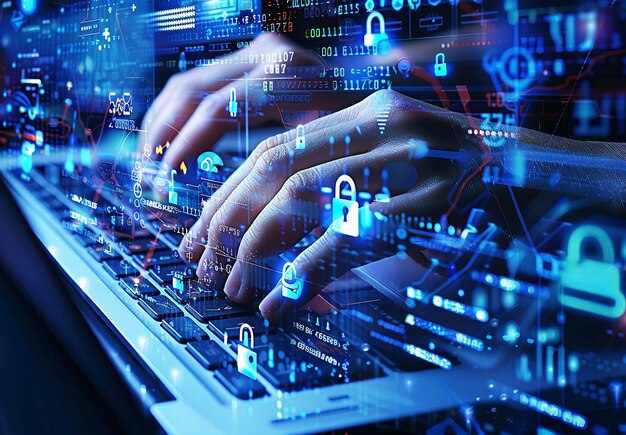20 Unwritten Rules About Cybersecurity

In the digital age, cybersecurity is no longer just the responsibility of IT departments—it’s everyone’s concern. While written guidelines and policies play a key role, many unwritten rules shape how individuals and organizations protect their sensitive data. Here are 20 unwritten rules to help you navigate the cybersecurity landscape effectively.
1. Think Before You Click
Links in emails, texts, or messages can be traps. Always double-check the sender’s identity before clicking, especially when it seems too good to be true.
2. Avoid Using Public Wi-Fi Without Protection
Public Wi-Fi is convenient but risky. Use a VPN (Virtual Private Network) to secure your connection when accessing sensitive information.
3. Keep Passwords Unique and Strong
Never reuse passwords across multiple accounts. Create strong passwords using a mix of letters, numbers, and symbols.
4. Trust Your Gut
If something feels suspicious, it probably is. Question unusual requests for personal or financial information.
5. Update Software Regularly
Outdated software often has vulnerabilities. Enable automatic updates to protect your systems and devices.
6. Back Up Your Data Religiously
Always have a backup plan. Use both cloud and physical storage to protect your data from loss due to cyberattacks or hardware failures.
7. Beware of Oversharing Online
Sharing too much personal information on social media can make you a target for phishing or social engineering attacks.
8. Secure Your Devices
Lock your devices with PINs, passwords, or biometric authentication. Never leave them unattended in public spaces.
9. Treat All Emails With Caution
Phishing emails are designed to trick you into revealing sensitive information. Be wary, even if the email looks legitimate.
10. Don’t Download Random Attachments
Attachments from unknown sources can carry malware. Always verify the sender before downloading.
11. Use Two-Factor Authentication (2FA)
2FA adds an extra layer of security to your accounts. Enable it wherever possible.
12. Think Twice About Free Apps and Services
Free apps often come at a cost—your data. Research apps and read their terms before downloading.
13. Stay Informed About Cyber Threats
Cyber threats evolve constantly. Keep yourself updated on the latest trends and scams.
14. Don’t Share Credentials
Sharing passwords or access credentials, even with people you trust, can lead to unintended breaches.
15. Log Out After Use
Always log out of accounts, especially on shared or public devices.
16. Be Skeptical of Pop-Up Messages
Avoid interacting with pop-ups claiming your device is infected. These are often scams.
17. Limit Access Privileges
Only give access to those who need it. The fewer people with access, the smaller the risk.
18. Dispose of Devices Securely
Before disposing of an old device, ensure all data is wiped completely.
19. Use Secure Password Managers
Password managers can store and generate secure passwords. Choose a reputable one.
20. Cybersecurity Is a Team Effort
Everyone in an organization plays a role. Share knowledge and encourage good habits among peers.
While technology continues to advance, so do the methods cybercriminals use to exploit vulnerabilities. By adhering to these unwritten rules and fostering a culture of vigilance, you can significantly reduce your risk of falling victim to cyberattacks. Remember, cybersecurity is not just about protecting data—it’s about safeguarding your peace of mind.




